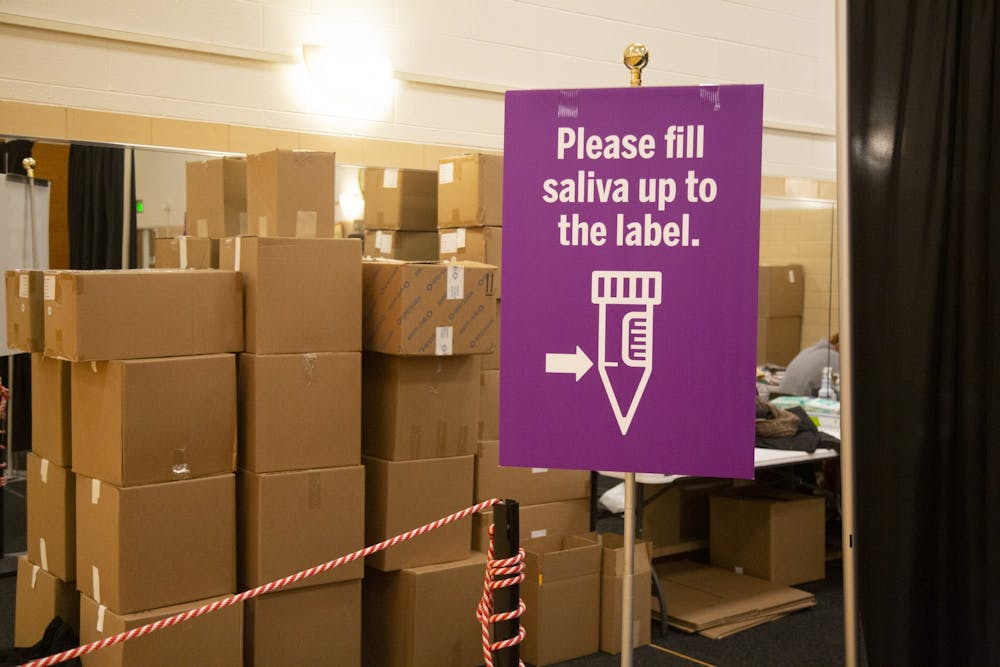IU transitioned to automated contact tracing for COVID-19 following an end to asymptomatic on-campus testing. Those who self-report positive test results will receive an email with instructions on self-isolation and informing close contacts, according to Theresa Vernon, IU’s contact tracing program manager.
Vernon said IU made the change because of low COVID-19 levels in the community during the summer. She said the contact tracing team has been disassembled, but the university still has a COVID-19 response team that meets daily.
Vernon said IU doesn’t know if contact tracing will return to the way it was last academic year.
“We’re still monitoring trends — national trends, local trends — and we’ll make those decisions later in the summer once we know a little bit more of what’s going on in the pandemic,” Vernon said.
Vernon said COVID-19 positive IU community members always received an automatic email, but now they will not be called by a contact tracing team. She said the purpose of the calls was to gather demographic information to report to the Indiana Department of Health.
IU spokesperson Chuck Carney said the change was due to a pause in large on-campus testing, but he said students, faculty and staff should still self-report a positive test.
IU has also stopped reporting case numbers on its COVID-19 dashboard as a result of the pause in testing.
Dr. Aaron Carroll, professor of pediatrics and Chief Health Officer at IU, said there is no longer a need for personal contact tracing and IU needed to scale back its team when people went back to their regular jobs.
Contact tracing will most likely remain automated, Carroll said, but testing and mask policy may change if a dangerous COVID-19 variant emerges.
“When we first did arrival testing, we almost felt like we needed trauma counselors available because when people got COVID they lost their minds,” Carroll said.
Dr. Alka Khaitan, an associate professor in the IU School of Medicine Department of Pediatrics, said she thinks it is highly unlikely COVID-19 will completely go away. She said vaccines are the key to dealing with the virus.
“If you’re vaccinated, you can feel safe in the context that maybe you’ll get COVID, but most likely you're protected against hospitalization and severe disease,” said Khaitan, who also works on creating algorithms for COVID-19 treatments at Riley Hospital.
She said vaccine hesitancy helped fuel the spread of COVID-19, which introduces the possibility of new variants.
“The virus is smart — it’ll keep mutating and try to stay in circulation, and it does that by creating these variants,” she said.
The Omicron variant is less severe for most, but not all, Khaitan said.
“There were a lot more pediatric hospitalizations during Omicron than prior variants,” she said.
Additionally, Khaitan said there are still unanswered questions about why some people get severe symptoms despite not having a particular risk factor.
“There are still a number of people that are getting very sick with it, and some of those are children who don’t have the opportunity to get vaccinated yet,” Khaitan said.
Carroll said that in the midst of a surge, contact tracing loses its purpose — at that point, he said it’s too late.
“The Omicron surge was so bad we couldn’t possibly keep up with it,” Carroll said.
Carroll said people are more familiar with protocol now and no longer need personal guidance on what to do, compared to the return to campus in the fall of 2020.
“Most people in America have had COVID,” Carroll said. “Everyone knows someone that has had COVID, we get isolation, we get quarantine — people sort of know the ropes about how things go.”




